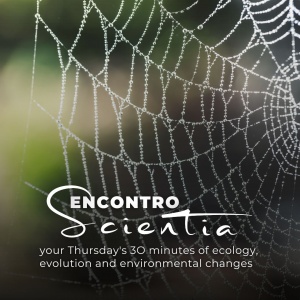Encontro Scientia with Francisco Dionísio (Evolutionary Ecology)
7 March 2024 . 12h00 (Lisbon time) . Room 2.2.14 (FCUL)
Online access • LINK
Password • scientia
The typical antagonistic relationship between pathogens or parasites and hosts is just one side of the coin concerning their interactions, as hosts can also benefit by using them as biological weapons to compete with other hosts of the same species. Previous works exploring the ability of bacteria to use viruses as biological weapons focused exclusively on viruses that confer immunity to their bacterial hosts upon integration into the hosts' genomes.
Here, as a proof of concept, we show that Escherichia coli cells can use the lytic lambdoid virus λvir to compete against other bacterial cells. We demonstrate that this hypothesis can be generalized to many other bacterial species and lytic viruses using computer simulations with thousands of combinations of randomized parameters. Therefore, this study is an important extension of the running hypothesis that hosts can use temperate viruses as biological weapons.
Tags: EE Escherichia coli biological weapons






